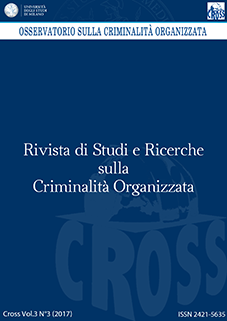Story of Lea Garofalo and her daughter Denise
DOI:
https://doi.org/10.13130/cross-9279Abstract
This article deals with Lea Garofalo’s case and the forms that have shaped its cultural memory in the Italian public discourse. Its main focus is related to “Lea”, the movie by the Italian filmmaker Marco Tullio Giordana on the story of this femicide and the relation between Lea Garofalo and her daughter named Denise Cosco. This case is exemplary, because it concerns the destine and the difficulties encountered by women, when they decide to contrast and resist against the mafiosi culture of the families, to which they belong. Moreover, it challenges those stereotypes, still very common, according to which mafia’s and camorra’s criminal activities are overspread mainly in South Italy. This femicide has been committed by n’drangheta in the centre of Milan and it is caused through criminal activities that took place in the North part of the country.
Keywords: Public memory, femicide, fight against organized crime, witnesses






